“Are you SURE we can’t help it??”
My son peered anxiously into the incubator as the little beak poked through the pea-sized hole in the shell.
The project started 3 weeks prior when my two youngest children (8 and 11) carried four goose eggs into the house with a pleading look.
“Pleeeeease mom… can we incubate them?”
Our female goose had built a half-hearted nest before deciding she’d rather spend her days cavorting with her boyfriend. My kids had been monitoring the situation for several days and finally snatched up the abandoned eggs.
I hesitated at their plea.
The eggs were likely not viable. Plus, we hadn’t hatched poultry in years and I’m rusty on incubation logistics.
In between listing the soda fountain for sale and many other things, I simply didn’t have the bandwidth to figure it all out again.
But the puppy dog eyes were intense, I decided to make them a deal.
“You can incubate the eggs,” I conceded, “But it will be YOUR project. You’ll have to figure out how to run the incubator, how to candle the eggs, and how to monitor the humidity and temperatures.”
“And…” I added ominously, “There’s a good chance they won’t hatch. Are you ready to handle that?”
They vigorously agreed.
And they handled it.
My son read the incubator manual like it was a college assignment. He set up the auto-turner, replaced the batteries in the hygrometer, and obsessively monitored the temperature and humidity.
He watched Youtube videos to learn how to candle eggs, and marked dates on the calendar to asses progress. (He discarded two that stopped developing.) As we inched closer to our estimated hatch day, he locked down the incubator and prepared for hatching.
I braced the kids for the possibility that neither egg would hatch.
And I was wrong.
That morning, squeals of joy rang through the house.
Goose egg #1 had a crack. Hatching had commenced.
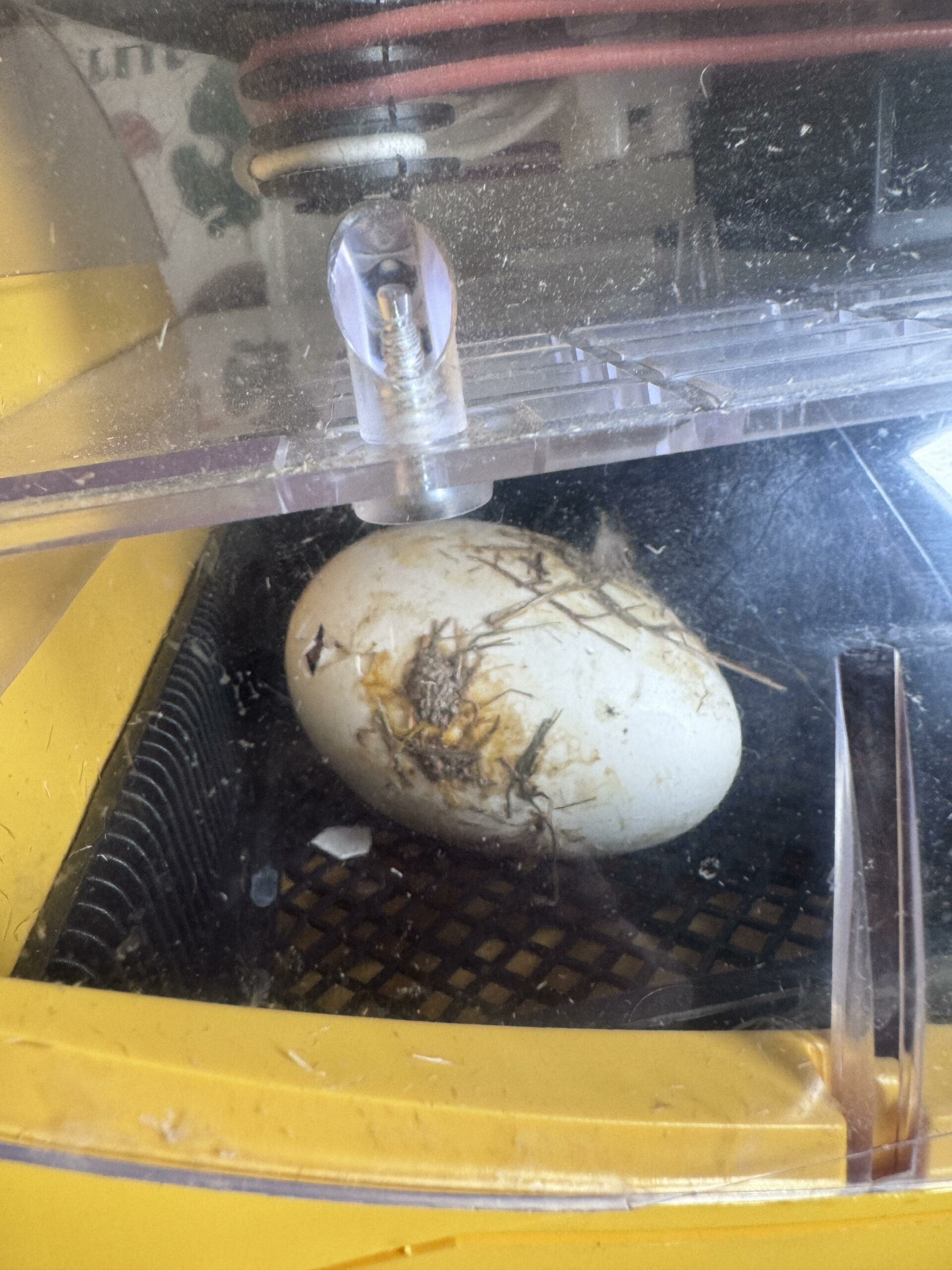
The kids set up camp next to the incubator and watched it like it was Netflix.
It’s hard to resist helping birds hatch. Our empathy kicks in and we can’t help but think of this helpless baby in an alien world, expending SO much effort to get through the shell. I could see the concern plastered on my son’s face as the hours passed and the gosling made little progress.
It was killing him to be a passive spectator.
I could tell it was taking everything he had not to open the incubator and assist the tiny beak in breaking through the shell. And if I’m being honest, I was feeling the same way.
”We can’t help it,” I explained to him (and myself, too). “The gosling needs to struggle a bit. If we rush in too soon, we’ll ruin its chance for survival.”
Turns out, this principle also applies to parenting.
When we make the path too easy for our kids, we harm their growth— just like prematurely cracking the eggshell.
It’s a concept that fascinated me when I wrote about it in Old-Fashioned on Purpose.
Modern parenting culture tells us that GOOD parents make their children’s lives as easy as possible. We are told to remove ALL roadblocks, smooth ALL paths, and NEVER allow them to feel negative emotions or pain.
But research shows it’s the exact opposite dynamic that forms children into healthy, functioning adults.
In her new book, Bad Therapy: Why the Kids Aren’t Growing Up, Abigail Shrier writes that resilience, not fragility, is the norm for kids.
They are far more capable than we think. When we step back and let them figure things out (in wise, age-appropriate settings, of course) they grow by leaps and bounds.
If I had micro-managed the hatching project in an effort to guarantee success (and possibly prevent heartbreak), I would have robbed my son.
Not only would he have missed the knowledge he gained (he now understands hygrometers better than I do), but I would have stolen the joy and confidence he felt the first time he held the gosling in his hands and knew that he EARNED that his victory.
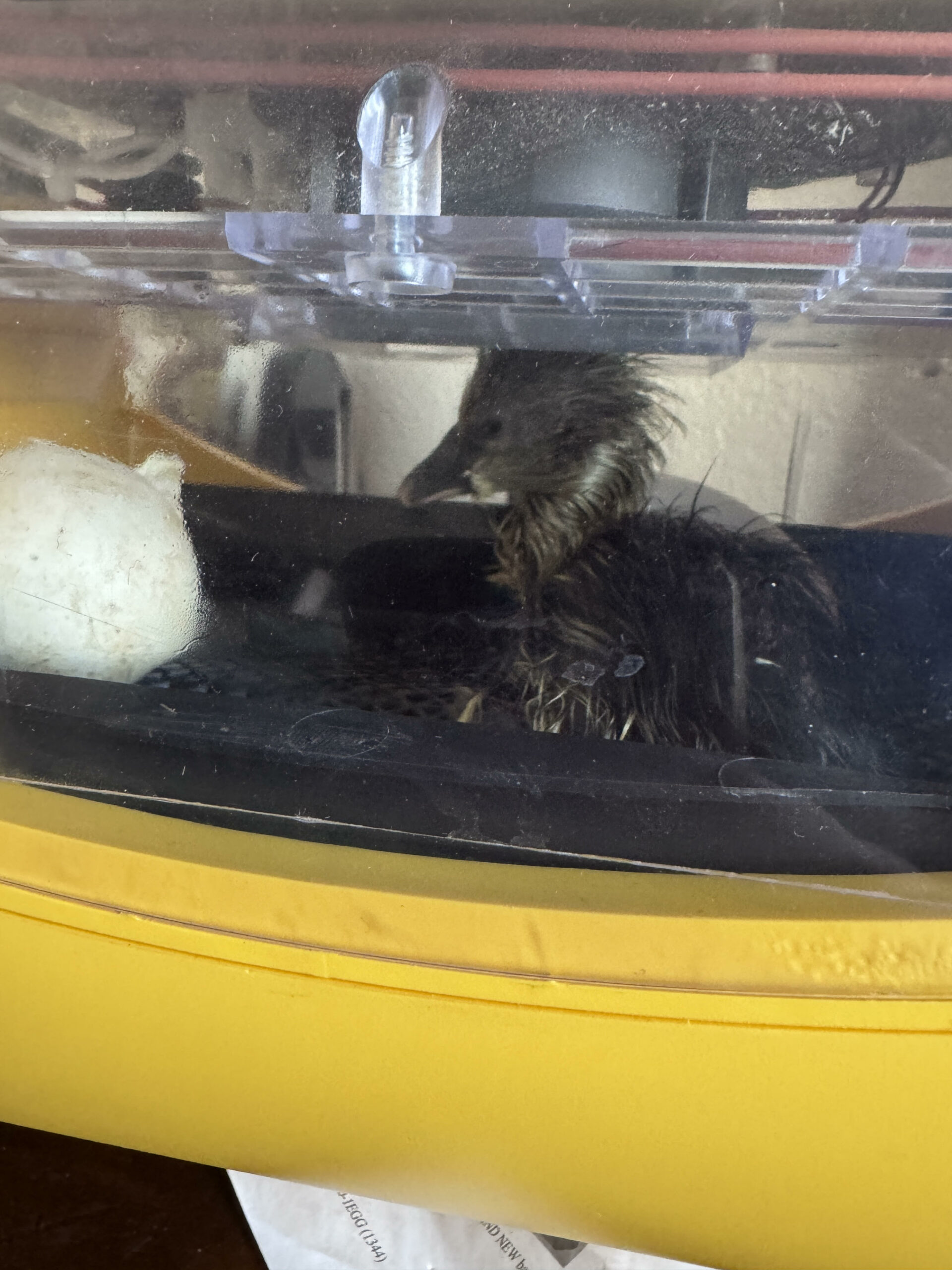
The difference is massive.
And that simple shift transformed a basic biology concept into a life lesson that’s more than the sum of its parts.
Make no mistake– it made me anxious to think about how upset he’d be if the goslings died… just like it made him anxious to watch the baby struggle to break from the shell.
But both struggles were necessary for a strong, healthy result.
And we both had to step back and let it happen.
Toward the end of her book, Shrier concludes that “parenting by subtraction” is the only path forward in a well-meaning world that is accidentally stunting its offspring.
And how do we apply this?
If we want resilient kids that hatch into capable, well-adjusted adults, we must do less.
We must make room for more autonomy, more mistakes, and more healthy struggle.
It seems to be the secret sauce for kids and goslings alike.
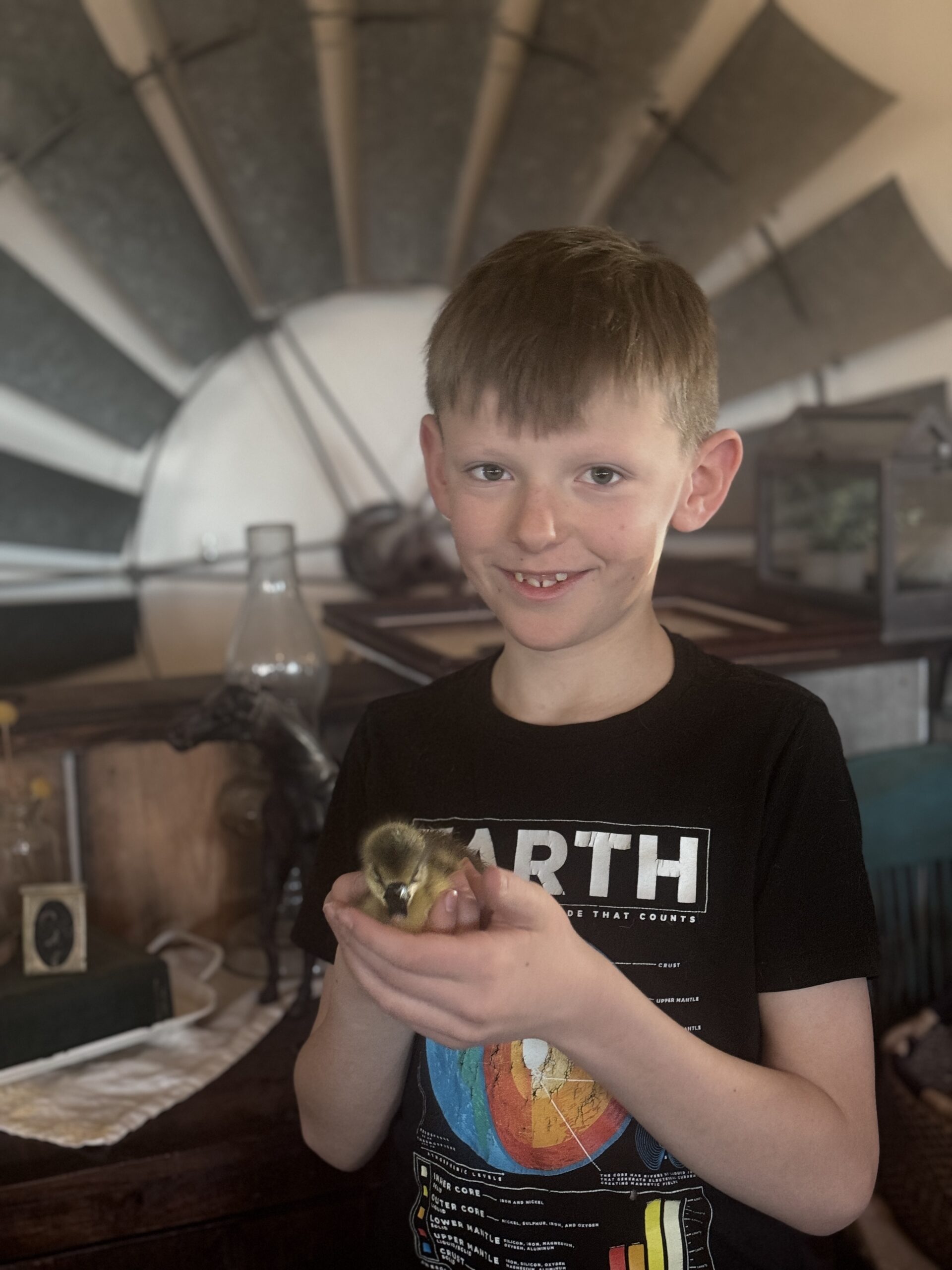
Long story short— both eggs hatched, despite my initial pessimism. We ended up helping the first egg after about 36 hours. Our incubator does a poor job of maintaining proper humidity and the gosling needed help working through the leathery membrane. But I’m glad we waited, as jumping in too early would have been disastrous (even though we were all tempted).
My kids were over the moon and SO proud of themselves. My son walked on air for at least 24 hours and kept repeating, “I can’t believe I did it all by myself!”
He’s already collecting eggs for his next hatch.
Parenting by Subtraction,
-Jill
P.S. I cannot recommend Bad Therapy enough. I devoured the book in 3 days and can’t stop thinking about it.
P.S.S. I am NOT a goose hatching expert, but in our research we learned that the vast majority of eggs do NOT need help– especially if they are hatched in proper conditions. Our equipment shortcomings messed that up a bit. But in case you currently have an incubator running for the first time– err on the side of waiting, not helping. 🙂
More of My Thoughts on Old-Fashioned Parenting:
- Raising Old-Fashioned Kids in a High Tech World
- I’m Teaching My Kids to Fail
- We Stopped Watching TV for 6 Months. This is What Happened
- My Biggest Challenge as a Homestead Mama Thus Far
- Could You Spend 1000 Hours Outside? (with Ginny Yurich)
- The Magic of Play (with Susan Linn)
- Free-Range Kids: How & Why (with Lenore Skenazy)
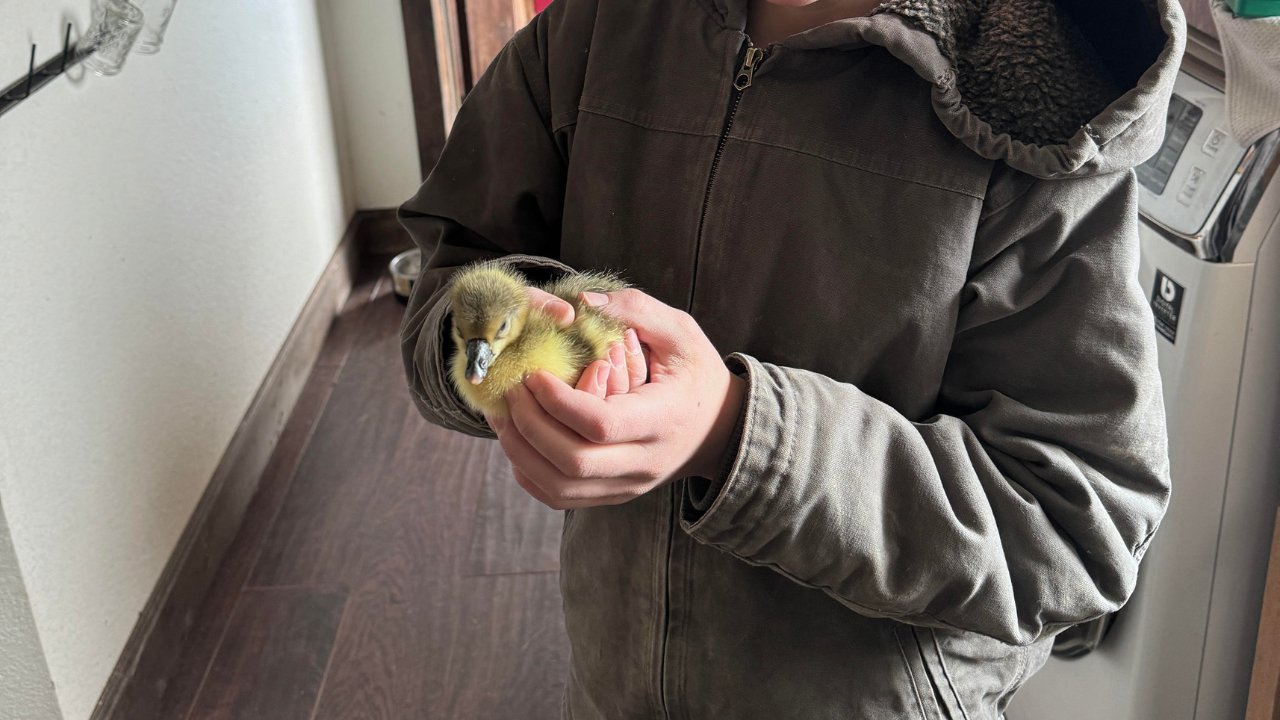



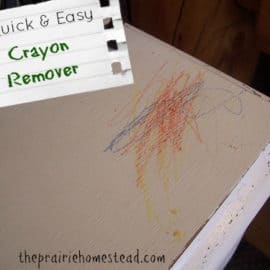
Loved Bad Therapy! So glad you’re recommending it. The chapter on Gentle Parenting is spot on! It is totally permissive parenting and I was so glad to read of someone else who had the same reservations as I did.